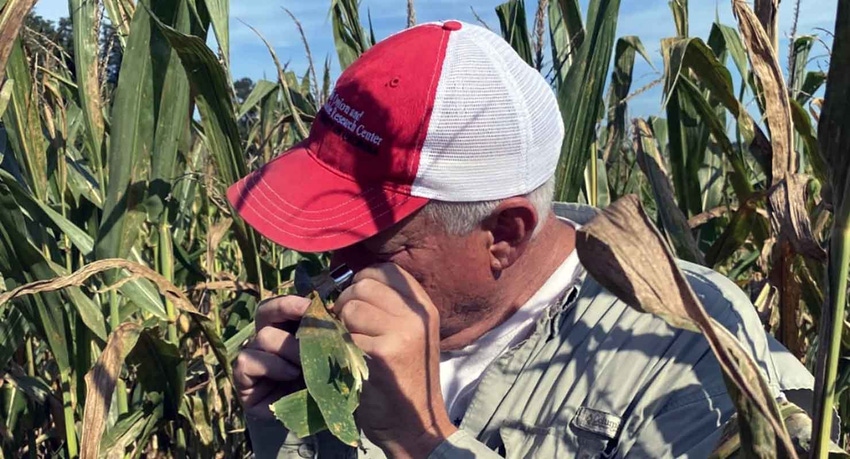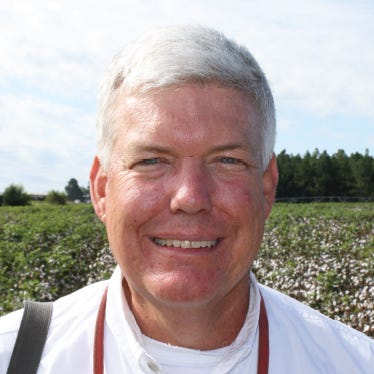
Sometimes called the BBQ Trail because of the meals and hospitality we receive while preaching the Extension gospel, winter production meetings are once again being conducted in person. During these meetings, Extension agents and specialists share research-based, non-biased recommendations with growers for the coming field season.
Production meetings are at the heart of our efforts in Extension to help growers to make best decisions for their farming operations.
In 2021 we were unable to hold these meetings in-person because of Covid. However, Extension learned much about the opportunity for the online format. One benefit of virtual was the ability to reach growers across the region without the need to spend our days, mornings, noons, and nights on the road and away from our families. But even with all that virtual meetings can provide now and in the future, they can never completely take the place of meeting with you in person.
Winter production meetings are more than a chance to listen to updates, get a good meal, and receive pesticide credits. These meetings allow you to know us and to put a face on our respective universities. These meetings allow us to listen to you. Your best questions often aren’t asked until we are ready to head for the door. When those questions are asked, almost apologetically, other growers will stop and share in the discussion that follows.
Out of curiosity, I asked Extension specialists to share the most important point they are making in their presentations this year:
Soil fertility
Dr. Glen Harris: “Even with the current high fertilizer prices, as long as the commodity price for cotton also stays high, it is economical to fertilize with N-P-K by yield goal using UGA recommendations.”
Dr. Henry Sintim: “Given the substantial rise in fertilizer prices and the need to remain economically profitable in your farming operation, it’s important to review your nutrient management program to be sure you are following current soil fertility recommendations."
Agricultural economics
Ms. Amanda Smith: “Although input prices are significantly higher than last year, the current high commodity prices provide opportunities to lock in positive margins. Producers are encouraged to utilize enterprise budgets to estimate their “breakeven” prices and yields throughout the growing season as input prices are expected to continue to be volatile.”
Dr. Yangxuan Liu: “For 2022, producers need to protect their profit margin by adopting sound risk management practices, by adjusting their marketing plans to take advantage of cotton prices, and by careful planning for cost of inputs.”
Precision agriculture
Dr. Simer Virk: “With high input costs and limited availability of certain products, any application issue or problem can become very costly. It is important for growers to dial in every piece of equipment for peak performance and to utilize precision technologies to be as efficient as possible with fertilizer, seed and chemicals!”
Weed management
Dr. Eric Prostko: “In general, start clean, use PRE herbicides at planting, be timely with POST herbicides, and hand-weed escapes. Also, most weeds in field corn can be controlled without Roundup if cost and availability are issues.”
Insect management
Dr. Philip Roberts: “Hire a scout, use thresholds, and conserve beneficial insects.”
Dr. Mark Abney: “Scout, use thresholds, and apply insecticides only when needed. Killing insects won’t make you money unless you preserve yield by killing insects; you can’t increase the plant’s inherent yield potential.”
Agronomics
Dr. Camp Hand (cotton): “Growers know their needs better than anyone. A major key to success in choosing a variety is picking one that meets these needs. Disease resistance, nematode resistance, herbicide tolerance, and response to PGRs all go into making this decision and into being successful. Choose a variety that fits your needs and works for you.”
Dr. Scott Monfort (peanut): ““The difference between loss and profit in 2022 will hinge on making informed decisions. Choosing to use products with little or no independent University research to back claims is not an informed decision.”
Mr. Rome Ethredge (corn): “Growers should take measures to avoid stress on their corn crop from the week before tassel though the milk stage, which is about days 55 to 90.”
Diseases and nematodes
Dr. Bob Kemerait: “In managing disease and nematodes, growers often have one chance to get things right- best opportunities to manage nematodes and tomato spotted wilt end when the furrow is closed; success with fungicides requires on-time applications with the right product at the right rate.”
It takes a special kind of person to persevere as a farmer; it takes a special kind of person to succeed in Extension. Production meetings allow for sharing of research and recommendations, but they also allow for each of us to know one another better. This understanding makes all the difference. And, as always, we thank the dedicated sponsors who quietly make these meals and fellowship possible.
About the Author(s)
You May Also Like






